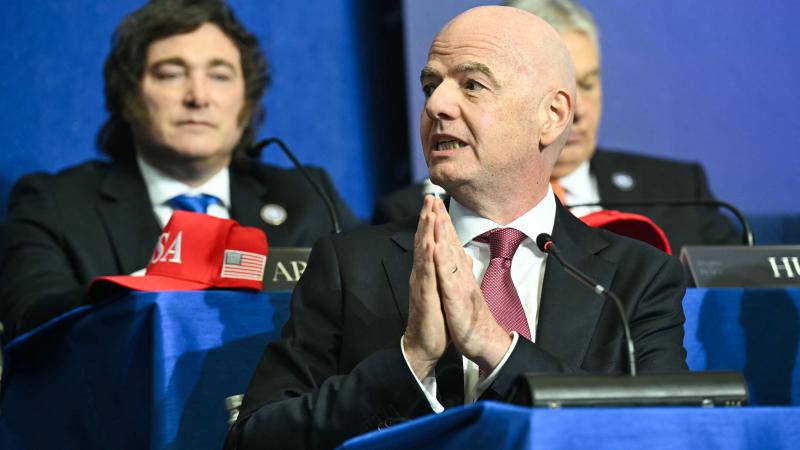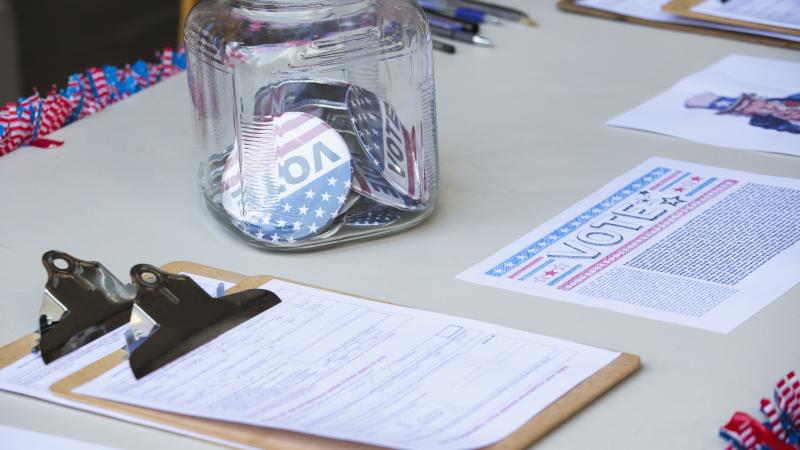U.S., Western allies meet at annual G7 summit, agree to more economic levers to stop Russia, China
The centerpiece agreement is aimed at securing funding for Ukraine well beyond this year
Treasury Secretary Janet Yellen and other top economy officials from the world’s richest countries agree Saturday in Italy to to seize Russian assets to back Ukraine and to start pressuring China to cut subsidies that give its companies an unfair advantage against western allies.
The centerpiece agreement from the ministers of the Group of Seven nations – an informal bloc of industrialized and democratic countries that includes all of Ukraine’s key Western allies – is to secure funding for Ukraine well beyond this year, in which the United States and the European Union have elections that could change geopolitical priorities for both.
The ministers from the G-7 met for three days in the lakeside Italian town of Stresa. The entire list of G7 members is the United States, Canada, France, Germany, Italy, Japan and the United Kingdom. The European Union is also part of the group but is considered a "non-enumerated member."
The plan on Russian assets was first floated by U.S. officials in the lead-up to the talks and was originally opposed by G-7 members France, Italy, and Germany (the member states that use the euro currency). But in Stresa, one by one other G-7 ministers endorsed it.
The plan would issue Ukraine a loan worth roughly $50 billion to be paid off by about $190 billion in seized assets from Russia’s Central Bank currently held by the Europe-based central securities depository Euroclear. The assets, which do not include any funds owned by private Russian citizens, could be used to repay additional loans going forward.
The details on how the loan will be structured are expected to be finalized at next month’s G-7 head of state summit, also in Italy, which holds the G7 presidency this year.
Ukraine is not a member of the G-7, but Serhiy Marchenko, the country’s finance minister, attended the talks as an observer. And though he supported the idea, he said it would only be a “temporary solution.”
Marchenko said the Russian assets should be confiscated and given to Ukraine.
Russia, which was a member of the group (then the G-8) until it was booted out after its invasion of neighboring Crimea a decade ago, threatened to seize assets held by U.S. citizens in Russia in retaliation to the move.
But Yellen, head of the U.S. delegation in Stresa, disregarded the threat. “We aren’t going to be deterred,” Yellen said.
Regarding China, the ministers “expressed concerns” about the communist-led country's “comprehensive non-market policies and practices” that undermine workers in Western countries.
That position is being considered as a compromise one between the U.S. (which has dramatically increased tariffs on Chinese electric vehicles and other “green” imports) and the European Union (which has conducted a series of investigations into Chinese subsidies for the high-tech products). But the stance will be flushed out further at next month’s summit.
“China has a different vision of the world than the West does,” Siliva Menegazzi, a professor for international relations at the department of political science at Italy’s LUISS University and a founding partner of the Center for Studies of Contemporary China, told Just the News. “China’s too big to be ignored, and it’s often a clash point because the views of the United States, Europe, and other countries aren’t always in line.”
Ministers also condemned the increasing military cooperation between China and Russia, a "no limits friendship" likely reinforced by Vladimir Putin’s trip to Beijing earlier this month.
The Facts Inside Our Reporter's Notebook
Links
- ministers of the Group of Seven nations
- both the United States and the European Union have elections
- originally opposed by G-7 members France, Italy, and Germany
- Europe-based central securities depository Euroclear
- G-7 head of state summit
- said it would only be a âtemporary solution.â
- We arenât going to be deterred
- Siliva Menegazzi
- Vladimir Putinâs trip to Beijing earlier this month
- Italy holds the groupâs rotating presidency
















